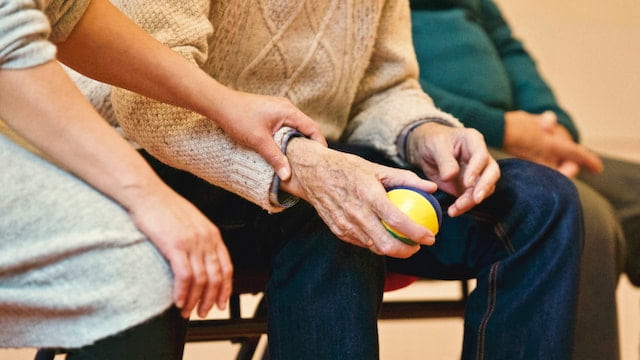Table of Contents
If you have been told by many people that you have a knack for helping or that you are empathic with a flair for learning about medicines, you may have considered working as a mental health nurse.
As the name suggests, mental health nurses are registered nurses who have been trained in the area of mental health, usually after they have gotten their standard registered nursing degree. In nations, such as the United States and Europe, most mental health nurses are working in community or rehabilitation units, psychiatric hospitals, general hospitals, and nursing homes, with a select group also choosing to work in prisons. This last group will usually have to be trained in forensics, too, with the other settings potentially requiring training in geriatric mental health nursing, child and adolescent mental, or training in dual diagnoses.
Typically, mental health nurses will usually specialize in one area of psychology or psychiatry, such as eating disorders, psychosis, or depression. However, many have undertaken training and experience in a range of specialties and settings to expand their knowledge of the field. This not only makes them incredibly sophisticated medical professionals, but it also increases their employability.
However, what exactly is it that mental health nurses do? After all, a standard registered nurse will be involved in everything from changing bedpans to colostomy bags, depending on where they work. Is that the same for mental health nurses? This article aims to explore exactly what you can expect in your position when you train as a mental health nurse and which skill sets are the most beneficial to training and succeeding in this line of work.
Assessing and Creating Care Plans
One of the most essential things that a mental health nurse does is assess and create care plans for the patients under their care.
Depending on the setting that you work in, the type of care plan that you will need to create will vary and will probably be similar to the care plans you designed and worked with when you were undertaking a post master’s psych NP. For example, if you are working in a rehabilitation unit, a care plan will likely involve the integration of the patient into community services and other groups outside of the hospital, preparing them for when they are discharged. However, if you work in a psychiatric intensive care unit, then you will need to draw up a care plan outlining what needs to be done with the patient when they are in this acute setting.
Care plans can be tricky to create, especially when the patient is not coherent or able to offer their feedback, so this will require a lot of liaising with other members of the psychiatric team in these instances, as well as decisive actions being taken. Even if you are working in an outpatient setting, you will still need to be able to draw up a care plan which, should the worst happen, your patient will need to know how to follow accurately and call for help if needed.
Administering Medication
A core part of mental health nursing involves the use of psychotropic medications. So, as a nurse in this area, you will need to be trained in psychopharmacology, especially if you are overseeing the care of patients who are taking medication, such as Clozaril or lithium, which would require very careful monitoring and assessing blood results.
However, there is more to administering medications than simply removing tablets from a blister pack and giving them to the patient. You need to be able to accurately identify when there are issues with the medication, as well as be able to differentiate these from regular side effects. For example, a lot of medications used to treat depression, such as selective serotonin reuptake inhibitors, can cause excessive sleep or lack of sleep, which can also be symptomatic of the meds not working as they should. They can also cause headaches, but this can be confused with (and be a symptom of) a serotonin storm, which is a rare but potentially deadly side effect of some SSRIs. Therefore, you will need to be able to differentiate between these and know how to look for the symptoms of one or the other and make decisions based on what you find.
You also need to know how to correctly store medications on the ward and will be responsible for charting as and when the patient takes the medication or refuses to take them. In some cases, if a patient refuses to take medication for a prolonged period, you and other members of the care team will need to use injectables to ensure that the patients retain a set amount of the medication in their system, which will stabilize their mood and well-being.

Building Relationships with Patients
Imagine that you woke up in a hospital and there was somebody in front of you telling you to take medication while looking annoyed at you. Would you take it? Not likely.
When working with patients who are paranoid or have anxiety, it is important in your role as a mental health nurse to be able to build rapport with patients, even if they are only under your care for a few hours. This will enhance their chance of recovery and will also reduce potential issues whilst they are under your care, such as fighting or refusing to cooperate with their medication regimen.
Advocating for Patient Care
It is also part of the role of a mental health nurse to advocate for patient care.
It is indeed a sad set of affairs that most patients who are detained in psychiatric wards do not have family or friends advocating on their behalf. This is where your friendship, rapport, and knowledge of the patient will come into play as you liaise with other members of the care team on their behalf to promote their best interests.
Advocating can also extend to medications. If it is in your professional opinion that a patient is not doing well on a new medication, then you will have to explain why and potentially even suggest alternatives based on the medical records of the patient and your knowledge of how they are feeling.
Arranging Support for Patients
Going back to the idea of working in an outpatient setting or a rehabilitation unit, it is your role as a mental health nurse to be able to arrange support for patients, whether that is in the form of referring them to a counseling or therapy group, or putting them in touch with a talking support group.
Depending on where you are practicing, you may also be required to ensure that state welfare is set up for the patient when they leave the hospital, so that they have the best chance at surviving on their own and recovering in the community.
If you are overseeing the care of a patient who is taking medication that requires blood tests to monitor safely, such as Clozaril, you will usually be required to book these appointments for them, especially if they are new to being in the community or if they are on your ward. This is as well as ensuring that they have access to medical support from doctors, dentists, and opticians as well.
Keeping Notes
Many people are familiar with nurses having to keep notes and records, but this is essential to patient care and recovery, especially in the field of mental health. Suppose you have a patient that has recently had their medication changed and is now showing signs of increased anxiety and stress; this will need to be noted. During the next ward round, this will enable the psychiatrist and prescribing doctor to see what this medication is doing and whether to change it. Keeping notes will also be beneficial, especially in psychiatric intensive care units, as it will help towards making an accurate diagnostic conclusion about the patient’s clinical presentation.
Advising Families
In cases where a patient who is under your care does have family members who are eager to be engaged with their recovery, your role as the mental health nurse will involve advising them on how best to support their loved one. You will also need to talk to the family members and friends about the mental health issues that the patient has been diagnosed with and answer all their questions with clarity and accuracy. After all, very few people are aware of what is involved in the clinical presentation of schizophrenia, for example, and will need advice on how to support their loved one if they are presenting with the positive or negative symptoms of this disorder.
This kind of advice and support will also ensure that the families are equipped and able to recognize when there is a crisis with better accuracy, which will help their loved ones to get the support that they need, when they need it, rather than feeling panicked every time the patient has a hallucination. In some cases, you will also be able to recommend support groups for family members and friends, so that they will have a safe space to air their concerns and frustrations with other people who are in a similar position to them.

Training Student Nurses
Another part of being a mental health nurse, whether it is a standard registered mental health nurse or a mental health nurse practitioner, is being on hand to train mental health nursing students.
This can seem like a huge undertaking, but in most cases, mental health student nurses are eager to learn and only want or need basic guidance from you. Depending on where you work, such as a psychiatric hospital, you may be responsible for the specific training of student nurses, which may require you to undertake additional teaching qualifications, especially relating to university placements.
This usually keeps most mental health nurses involved in their own learning and development. So, you can rest assured that if you are training student nurses, your skills will be kept up-to-date and relevant to the setting in which you are working. So, it’s beneficial for everybody.
Overseeing Clinical Standards
Depending on the state that you work in, the clinical requirements for the ward or outpatient setting will be different. However, as part of the mental health nursing team, you will be required to ensure that a high level of clinical practice is maintained and that all of the records, notes, and observation charts are kept up to date. You should also be able to accurately assess health and safety on the ward where you work or in the community placement and know where to report issues accordingly for the safety of the staff and the patients.
This is likely to involve you needing to identify when new medications need to be ordered, if there is an issue with any clinical equipment and whether all of the safety equipment, such as fire extinguishers, are working. You will also need to ensure that all the staff are familiar with fire safety and evacuation procedures should there be an incident that will require an evacuation.
Visiting Patients at Home (Community-Based)
In some instances, especially when working in community-based or outreach settings relating to mental health, you will be required to visit the patients under your care in their homes.
This is especially important if they have recently been released from a psychiatric ward and are living on their own or in supported accommodation for the first time. You will then need to report whether you feel they are maintaining their hygiene and general health, as well as reporting back about concerns that you or they have noted with the accommodation, finances, or the environment that they are in. It’s also important to note that you will be responsible in these settings for noting signs of mental deterioration and will need to be able to plan the best course of action to keep as many patients as you can in the community.

